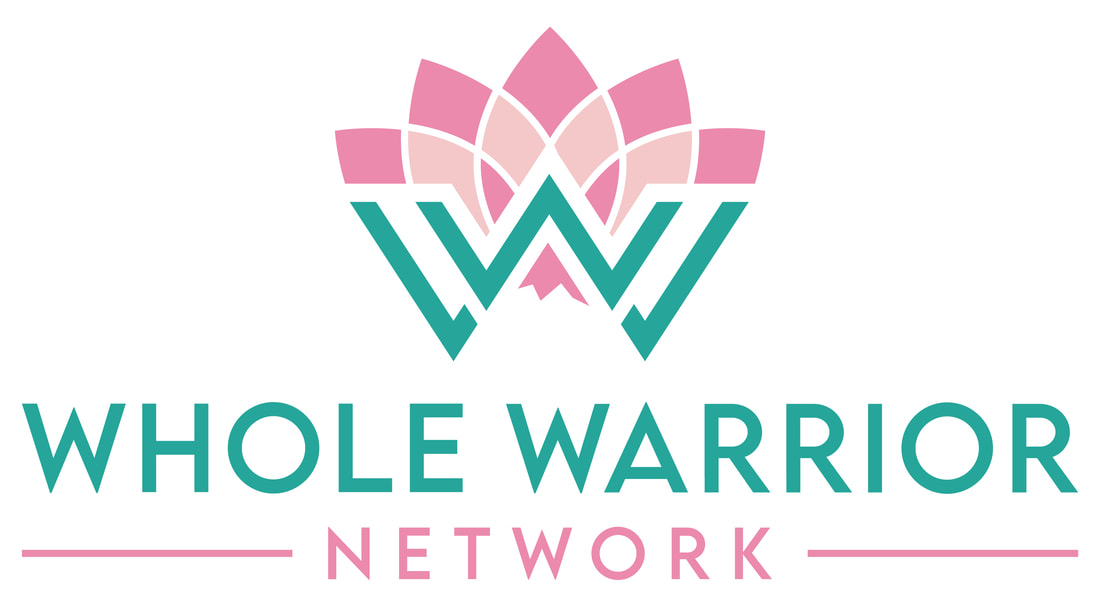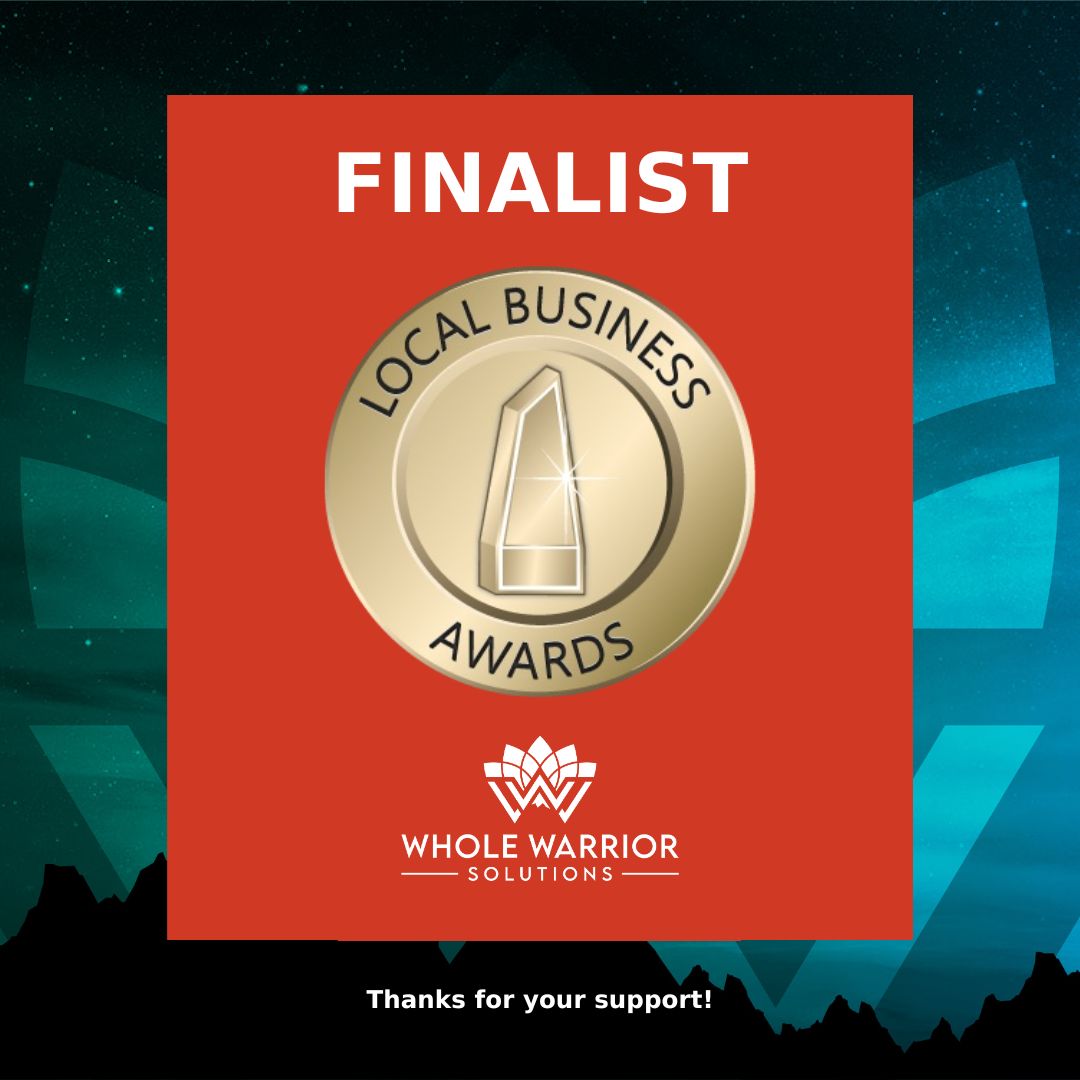|
Whole Warrior Solutions blog
Mary appeared almost unrecognisable as she walked down the hospital corridor shuffling her bare feet. She held out her arms. We embraced. She held on and sobbed, and sobbed. Our arms stayed locked until she was ready to release. Mary appeared an empty shell of the lively woman I used to support. Now Mary appeared broken, dishevelled, with matted hair, and wearing someone else's clothing. Mary stared at me with a vacant yet desperate gaze. It was like the life had been sapped from her. Devastated from years of abuse, forcibly separated from her children, deprived of all freedoms in a locked hospital ward. Mary had been scheduled under Section 22 of the Mental Health Act as she had been a risk to herself and her children allegedly. Listening to Mary recall her ordeal made tears well up in my eyes. Mary described the process of being forcibly detained with six men physically restraining her during the scheduling and jabbing her with a needle - likened to the trauma of a sexual assault. There were no words to console. Sometimes it is the deep understanding of just sitting with the grief, together. We sat and cried. The fact Mary felt safe to share her dark night of the soul with me spurred me on to advocate for her with the hospital social worker and mental health nurse. I attended discharge planning meetings with Mary and committed to supporting her with followup tasks to help her rebuild her life. Mary had no family and really needed support to re-enter society. Whilst Mary stayed in hospital she received a number of labels or diagnoses about her mental health. Forced to attend groups with people living with significant mental health and forensic histories, including schizophrenia, bipolar, borderline personality disorders, narcissistic personality disorders and other's with complex comorbidities and behaviours. Mary described feeling scared living with people not of her choosing, some who were very unwell, gave her death stares, and others who followed her around the corridors. Mary said she stayed in her room to increase safety. Yet was expected to engage in group therapy and activities with people not of her choosing. After a month and much advocacy on my part, Mary was discharged and ready to start a new life. A new chapter, new beginning. Over the next year that I walked alongside Mary, I held space for her. Helped her find a new home, linked her with support workers, cleaner, a gardener, and visited her weekly. The home visits eventually tapered down to fortnightly then monthly. Over time Mary's energy and self-care practices returned, had enough energy and money to meet up in the community, going for walks, meeting for coffee, doing activities together, text messages and phone calls. During this recovery coaching journey Mary integrated trauma, engaged in holistic somatic practices, equine therapy, talk therapy, sound healing, mindfulness and meditation practices in line with her faith. Mary overhauled her concept of good nutrition, exercise, hydration and more. As her wellness and confidence increased I helped her get a part-time job with animals that she loved. I had the grand privilege of witnessing Mary's transformation to wellness! Mary was determined to rebuild her life and her mental health. With support that is exactly what she did! Mary's commitment to her recovery journey was next level. I'd never seen anyone smash goals out of the park like Mary did. We celebrated every task completed and documented the milestones so she could reflect back on the wins! Mary was the recipient of a National Disability Insurance Scheme (NDIS) budget for Psychosocial Recovery Coaching. Fortunately having this funding enabled Mary to be referred to engage my services and support her in her wellness goals. This type of coaching sits under the banner of NDIS Support Coordination and is a peer support role with a recovery oriented framework. Recovery coaching is a peer support role, and workers are required to have experience living with mental health themselves or have cared for a loved one living with mental health. I happen to have both experiences, having survived and thrived after PTSD. Additionally, my late birth father lived with schizophrenia and I witnessed how disenfranchised he became socially and economically. Complicated grief, being stuck in denial about his diagnosis, a desire not to take drugs that had massive side effects, all impacted his life and wellness. I also witnessed Dad coming under police investigation for behaviours that destroyed our family, yet some were by choice when he was well, others at times when he was unwell. It was very confusing and put strain on his relationships, ending many of them prematurely. As a result I entered years of therapy to integrate my own traumas and attachment injuries. I'm glad I put in the effort to increase my self-awareness, integrate trauma, and now see life and relationships through a different lense. There are some recovery coaches who get into the recovery coaching role with the minimum Certificate IV Mental Health. Professionally, I have attained a Bachelor Social Science (Social Welfare) and Advanced Diploma Community Services, and 20+ years experience in child protection, coordinating homeless and domestic violence refuges and have worked at the domestic violence crisis line. However, despite the variation of experience and training in the recovery coaching role I think it is about finding a worker that is a good fit for you or your client. A worker who holds unconditional positive regard and has ability to motivate and encourage the client towards healing. Additionally, an evidenced based framework for practice and access to an experienced clinical supervisor is crucial in order to do no harm in the recovery coaching role. For me it is a great privilege walking alongside people who are living with complex mental illness in a broken mental health system, who often experience discrimination and stigma. Having knowledge of the system, legislation, the medical model (diagnose and drug) and holistic recovery model (mind, body, spirit, and get to the root of the issue to enhance wellness) empower's clients to see their wellness from a macro and micro level. I am a great believer in the social determinants of health - meaning we can not ignore the environment and social stressors or supports as factors that affect wellness. The principles of the recovery oriented approach include understanding that each person is different (person-centred practice) and should be supported to make their own choices (choice and control), listened to and treated with dignity and respect. I'm also a big advocate for trauma-informed and collaborative practice so the client doesn't have to re-tell their trauma story to every worker they are referred to. As my business name suggests (Whole Warrior Solutions) I'm big on solution focussed practice where the client has the solutions that lie within. I am just a vessel to open up options and help them to see they have choices in their life and recovery. Individual and systems advocacy comes naturally to me after years of working in government and non-goverment roles to empower people towards healing. Not every client is in crisis like Mary. Many people living with mental health are stable, know their symptoms well and benefit from long term recovery coaching to maintain their treatment and wellness goals. Whilst not everyone is fortunate enough to get Psychosocial Recovery Coaching funding in their NDIS plan. However, it can be applied for if you have evidence in letters less than 12 months old from eg a psychiatrist or clinical psychologist or mental health occupational therapist. Further information is available below about psychosocial recovery coaching. I also have designed the Whole Warrior Rejuvenation - 12 month course NDIS Psychosocial Recovery Coaching for those who may prefer a more structured approach to their recovery or topics for each session. If you'd like some help to access this type of NDIS funding or want to book in please email me here or call 0401 503 477. Yours in wellness Love and light Tania x NB: the client's name and details in the case study have been changed for privacy. NDIS Psychosocial Recovery CoachingWe understand that activating and unlocking your NDIS plan's potential can be overwhelming at times. That's why we offer the services of a psychosocial recovery coach, who will play a vital role in helping you achieve your goals. Our recovery coach is a peer worker with mental health knowledge, who will take the time to get to know you and understand your needs. With their help, you can find out about different services and supports that can help you get support from mental health services. Our recovery coach has over 20 years of experience in complex case management, strength-based and trauma-informed practice. We take pride in offering excellent person-centred empowerment without judgement in our service delivery. Our services are funded under the NDIS Category: Support Coordination - Psychosocial Recovery Coaching Support item 07_101_0106_6_3. We also offer flexible schedules, with services available on days, evenings, weekends, and even public holidays upon request. Our services may include trauma-informed home visiting, person-centred wellbeing plans, suicide prevention plans, peer support, casework, information, and referrals. We will work with your supports, family and friends to empower your wellness in a holistic manner if desired. We serve NDIS self-managed or plan managed participants and our prices may be subject to change per the NDIS pricing arrangements guide. Private funding is also welcome, with GST added to the final price. If you're interested in learning more or making a referral, please email [email protected]. You can also book your sessions with our recovery coach directly below. Don't let mental health struggles hold you back from experiencing joy again. Let our recovery coach help you unlock your NDIS plan's potential and achieve your goals. Email [email protected] to learn more. Make a referral. Book your sessions here Whole Warrior Rejuvenation 12 month Course - NDIS Psychosocial Recovery Coaching"Whole Warrior Rejuvenation": A 12-Month NDIS Psychosocial Recovery Coaching Course" for mind, body and spirit! What you will get out of this 12 month NDIS Psychosocial Recovery Coaching Course:
Unlock the potential of those living with mental illness or disability with our comprehensive 12-month course, Whole Warrior Rejuvenation. Our NDIS Psychosocial Recovery Coaching program empowers individuals to take control of their lives and reach their goals. With expert guidance, personalised support, and evidence-based strategies, our program equips clients with the tools they need to increase their wellbeing. Join us on the journey to empowerment and make a lasting impact on your life and lives of those in your community. Course outline: Month 1: Introduction to NDIS psychosocial recovery coaching and setting goals Month 2: Creating a self-care plan and practicing self-compassion Month 3: Developing coping mechanisms for stress and anxiety Month 4: Improving self-esteem and self-worth Month 5: Enhancing social skills and building healthy relationships Month 6: Identifying and challenging negative thought patterns Month 7: Building resilience and emotional intelligence Month 8: Exploring mindfulness and its benefits for mental health Month 9: Addressing trauma and processing emotions Month 10: Understanding the mind-body connection and how it affects mental health Month 11: Improving sleep habits and addressing sleep issues Month 12: Reviewing progress and setting future goals for continued growth and development. Or insert a tailor made session for you as we strive for a person-centred and trauma-informed approach. Self and plan managed NDIS participants may access this service with funding under the NDIS support item number 07_101_0106_6_3 Support Coordination, Psychosocial Recovery Coaching. Private funding welcome, add GST. Email [email protected] to learn more or book. Make a referral. Learn more at www.wholewarriorsolutions.com.au
2 Comments
Emman
23/5/2024 11:25:04 am
It’s a stark reminder of the profound impact of mental health struggles. I’ve been interested in psychosocial recovery coaching for a while, and it’s stories like Mary’s that highlight the need for compassionate support systems. In my experience, a dedicated recovery coach can make a world of difference by offering tailored, empathetic assistance. It’s crucial to keep discussing and advocating for better mental health support. Thanks to https://surewayhealthwellbeing.com.au/ndis-recovery-coaching/
Reply
Leave a Reply. |
AuthorTania Gorry is the founder of Whole Warrior Solutions based on the Central Coast of NSW. Blog Categories
All
Blog Archives
December 2023
|
|
|
|
CONTACT US
Nexus, 3 Amy Close, Wyong NSW 2259, Central Coast, Australia PO Box 200, Wyong NSW 2259 Telephone: 1800 431 506 |
At Whole Warrior Solutions we provide Counselling, Coaching, Consulting and Community Services Australia wide. Established 2018
Empowering futures! Founder of Whole Warrior Network @wholewarriornetwork #ndisnetwork Established 2019 |
(C) Copyright 2018-2023 Whole Warrior Solutions | All rights reserved | ABN 59 941 852 312 | Privacy | Disclaimer


 RSS Feed
RSS Feed





